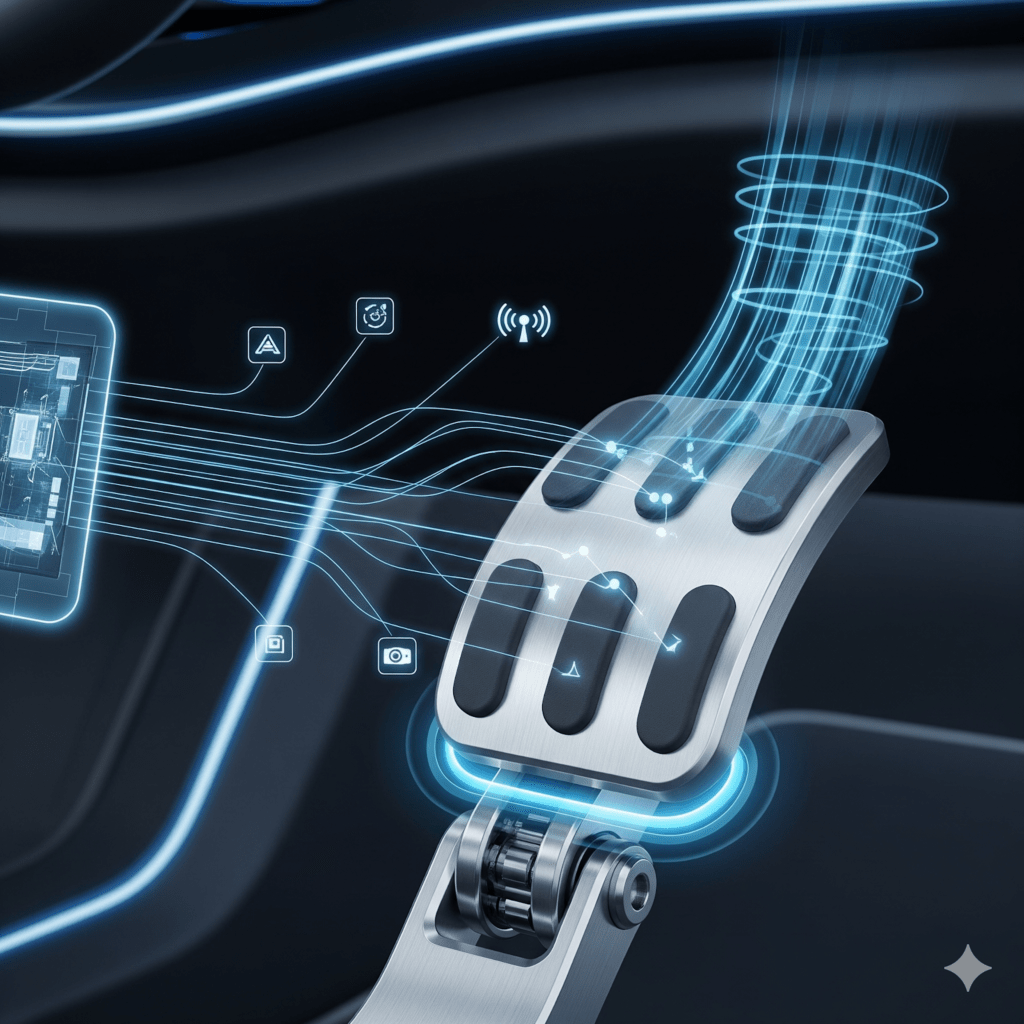
The Automotive Haptic Accelerator Pedals Market is witnessing increasing traction as automakers and technology suppliers embrace advanced driver assistance systems (ADAS) and safety-focused innovations. Haptic accelerator pedals are advanced electronic pedals that provide tactile feedback (vibration or resistance) to drivers, alerting them about unsafe acceleration, proximity risks, or energy-efficient driving practices. Unlike traditional pedals, these are integrated with sensors and actuators to improve driver awareness, road safety, and fuel efficiency.
By combining safety with intuitive driver feedback, haptic pedals are becoming essential in modern passenger cars and commercial vehicles, especially as the automotive industry transitions towards connected and semi-autonomous mobility solutions.
Market Size and Growth
The demand for automotive haptic accelerator pedals is projected to grow steadily through 2032, supported by:
- Rising emphasis on driver safety and government regulations targeting road accident reduction.
- Growing penetration of ADAS features in mid-range and premium vehicles.
- Increasing consumer preference for fuel-efficient and eco-friendly driving assistance.
- Adoption of electric and hybrid vehicles, where haptic feedback helps optimize regenerative braking and energy use.
Market Segmentation
By Type
- Steel Pedals
- Aluminum Pedals
- Composite Pedals
By Application
- Passenger Cars
- Commercial Vehicles
By Region
- North America
- Europe
- Asia Pacific
- Latin America
- Middle East & Africa
Competitive Landscape
Key players operating in the global automotive haptic accelerator pedals market include:
- KSR International
- F-Tech Corporation
- WABCO
- CJ Automotive
- CTS Corporation
- Brano Group
- F&P Mfg
- Samvardhana Motherson Group
- Toyoda Iron Works
- Batz
These companies are focusing on strategic partnerships, OEM collaborations, and new technology integration to capture opportunities in smart mobility. Automakers are increasingly working with pedal manufacturers to align haptic feedback with ADAS systems, energy management, and driver assistance alerts.
Why This Report is Important for Businesses?
This market report provides strategic insights crucial for businesses, startups, and investors looking to capitalize on the future of smart automotive components. Key benefits include:
- Understanding the growth potential of haptic pedals in both passenger and commercial vehicles.
- Identifying OEM and aftermarket opportunities in global regions.
- Tracking R&D advancements in materials (steel, aluminum, composite) for lightweight and durable pedals.
- Evaluating the role of haptic pedals in EVs, hybrid vehicles, and next-gen autonomous mobility ecosystems.
For startups and suppliers, this report highlights the increasing opportunity to integrate sensor technology, AI-driven feedback systems, and eco-driving solutions with accelerator pedals.
Recent Industry Developments
- June 2024 – KSR International announced its new-generation haptic accelerator pedal system designed to work seamlessly with ADAS alerts for lane departure and forward collision warnings.
- April 2024 – Samvardhana Motherson Group expanded its partnership with a European automaker to deliver lightweight composite haptic pedals for next-gen EV platforms.
- January 2024 – CTS Corporation showcased its AI-integrated haptic feedback pedals at CES 2024, enhancing driver interaction with real-time road and vehicle data.
These developments indicate a strong trend toward integration of haptic technology with intelligent mobility solutions.
Strategic Insights
- Safety regulations as growth drivers: Regulatory bodies in Europe and North America are encouraging integration of haptic feedback systems to reduce driver errors.
- Passenger cars dominate demand: Luxury and mid-segment passenger cars are expected to lead adoption due to early integration of advanced driver feedback systems.
- Lightweight material advantage: Aluminum and composite pedals are gaining popularity as they support lightweighting trends in automotive design.
- Asia Pacific growth: With China, Japan, and India investing heavily in automotive R&D, the region is projected to register the fastest CAGR.
FAQs
Q1. What are automotive haptic accelerator pedals?
Haptic accelerator pedals are advanced pedals equipped with sensors and actuators that provide tactile feedback to drivers, enhancing safety, fuel efficiency, and driving awareness.
Q2. Which vehicle type will dominate demand?
Passenger cars are expected to dominate adoption due to integration of ADAS systems and rising consumer demand for safety technologies.
Q3. Who are the leading players in the market?
Top players include KSR International, WABCO, CTS Corporation, CJ Automotive, Samvardhana Motherson Group, and Toyoda Iron Works.
Q4. How do haptic pedals benefit electric vehicles?
They help optimize energy usage, regenerative braking, and eco-driving feedback, making them highly suitable for EVs and hybrids.
Q5. Which region offers the fastest growth opportunity?
Asia Pacific is projected to lead growth due to rapid EV adoption, strong manufacturing base, and increasing government support for smart mobility solutions.
Conclusion
The Automotive Haptic Accelerator Pedals Market is positioned for strong growth through 2032, driven by safety innovations, lightweight materials, and EV adoption. With leading players focusing on integrating AI, smart sensors, and energy optimization, these pedals are set to become a standard component in next-generation vehicles. For automakers and suppliers, the market presents an attractive growth opportunity, particularly in regions like Asia Pacific and Europe where demand for safety, sustainability, and efficiency continues to rise.
Author:
Authored by Shweta R., Business Development Specialist at Prophecy Market Insights. This analysis is based on a combination of primary and secondary research, providing strategic insights into the evolving dynamics of the global automotive haptic accelerator pedals market.
The macro analyst desk brings highly sought after financial news based on market analysis, insider news and company filings.
